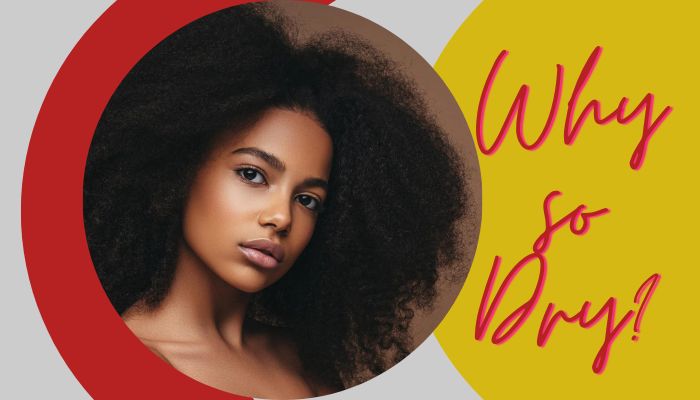Moisture deficiency is frequently the cause of dry, kinky hair. Your scalp naturally creates oils for your hair, but unlike straight hair, which allows these oils to flow down each strand, coily hair makes it more difficult for these oils to move down each shaft. Because of this, even if your scalp is soft and moisturized, the ends may become fragile and dry.
The texture of black hair contributes to the dryness of the hair. People with black hair have coily, kinky hair that resembles an S shape. Natural oils cannot evenly coat the scalp due to this shape. Due to this, black people have dry scalps despite producing more sebum from their hair follicles.
Also Read: Black People Statistics You Probably Didn’t Know About!
However, this situation is not relatable to all black people. Not all black people will have the same type of hair, so not all black people will have drier hair. If you don’t properly moisturize or care for your hair, it will become dry.
Your hair needs more moisture to stay healthy because the texture of your kinky hair naturally dries out your scalp. The scalp can further deteriorate if a person follows a haircare routine that worsens the condition.
Also Read: Everything You Need to Know About Black People
Haircare routines that cause dry hair
You might want to consider how you’re caring for your dry hair. Do you frequently use too much shampoo, dry out your hair with dry shampoo or hair colors, or expose your coily hair to high temperatures and damaging chemicals like sulfates, silicons, and alcohol?
Let’s examine the practices that contribute to dry hair.
1. The Weather

Do you ever wonder why, throughout the winter, your hair becomes so dry and brittle? Your natural hair may suffer from the drop in humidity and temperature. Since the colder, drier weather can deplete your hair of moisture and leave it feeling dry, brittle, and dull, if you notice that your hair is becoming drier during these transitional months but haven’t changed your routine, it’s definitely a result of this.
Your glands are adapted to react to heat since your kinky adore the sun and have enjoyed the glorious African sun for millennia! Compared to the hair of your Caucasian cousins, kinky does not absorb as much moisture. The increased density also makes it less likely for nutrients to travel the full length of our strands, which makes them dry.
You can also lament the dryness and frizz in your hair. This is because frizz is frequently caused by dryness. Dry hair strands will absorb part of the water in the air and swell up when they are exposed to humidity. Frizz is brought on by this.
Our preferred treatment for this is to ensure that you avoid dryness brought on by the weather by adhering to the liquid-oil-cream (LOC) and liquid-cream-oil (LCO) procedures. The acronym denotes the order in which the products should be used.
2. Too much shampoo
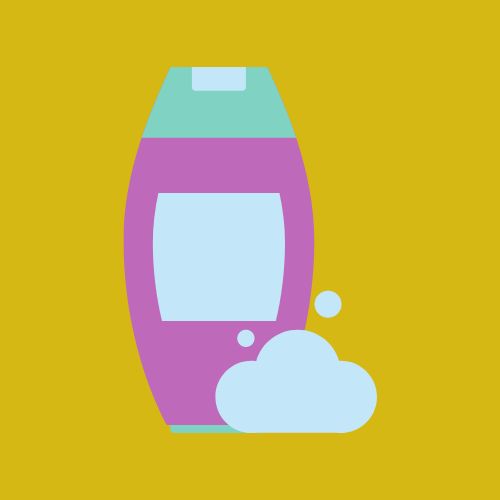
If you choose the wrong shampoo, it could cause more harm than good, so do your research and test as many as you need to until you find the one that works.
In order to prepare your hair and enjoy the benefits of your shampoo, you should also wash it with warm water. You should also try performing your last rinse under cold water. Your hair will be more permeable after using warm water, and towards the end, cold water will assist seal in the moisture.
3. Over-Washing Your Hair
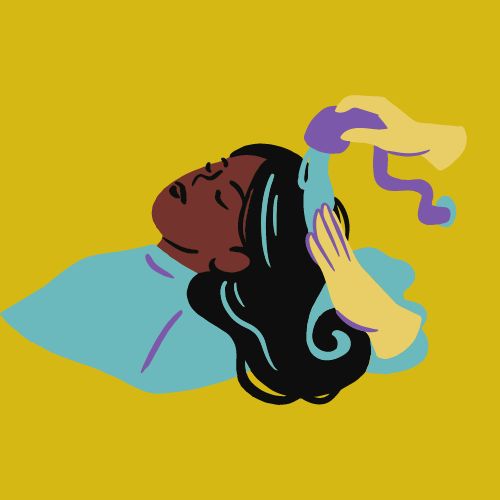
You may not know that washing your hair frequently can dry it out. Due to hygral tiredness, excessive washing of your hair can cause it to become dry and brittle. The repetitive expansion and contraction of hair that occurs every time you wash your hair results in a weakening of the hair. In other words, as the hair shaft fills with water, it expands, and as it dries, it contracts. Hygral tiredness ultimately can lead to dryness, breakage, weak hair, and split ends—basically, everything you might want to avoid.
Pre-treating your hair with coconut oil before washing it with a decent, natural shampoo that is gentle enough to use every day is one strategy to prevent hygral exhaustion. It has been demonstrated that coconut oil protects hair by clinging to the proteins in the hair shaft, which results in fewer water molecules being able to cling to the hair and reduced swelling.
4. You use oils the wrong way
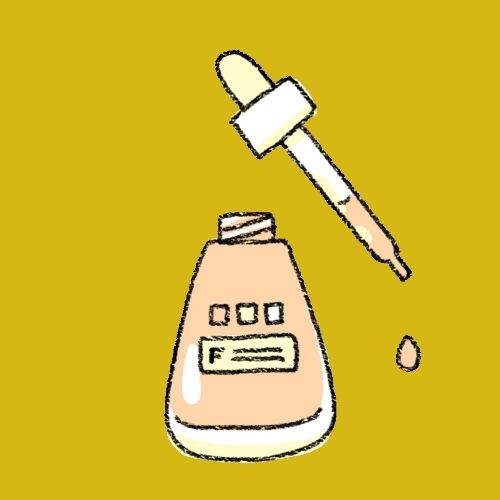
Some oils, such as coconut oil, palm kernel oil, and sunflower oil, can truly hydrate hair by reaching the hair shaft, while most oils are simply good for sealing. Avocado oil, olive oil, and argan oil are examples of sealing oils that merely lock in the moisture and soften the strands.
Many people mix up oils and moisturizers, leaving their hair coated and prone to breakage and dryness. Apply a water-based moisturizer to the hair first, then seal the strands to stop moisture loss and breaking.
5. You have product buildup
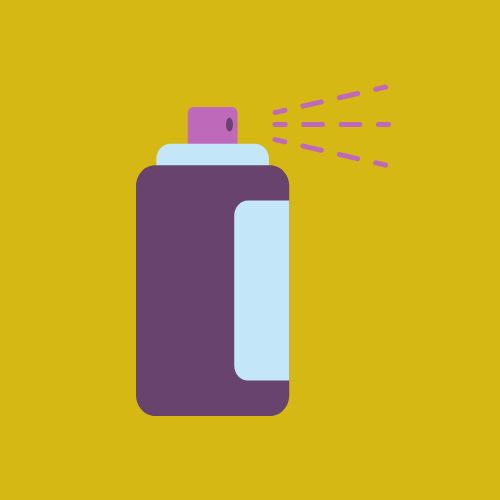
You might be surprised to see this on the list considering that product buildup is typically connected to hair weight, but the issue with product buildup is that it can trap the hair and prevent water from penetrating. A similar issue arises if you do not shampoo or clean the hair frequently enough; the dirt and products coat the hair, causing all of the moisturizing products you use to simply lay on top of the strands. Your hair can break if it is dehydrated and brittle from a lack of moisture.
This issue can arise from using silicone-containing cosmetics, especially if you don’t use a clarifying shampoo to get rid of them.
When you coat your hair with products for too long, it prevents moisture from nourishing the strands.
6. Using damaging chemicals

Since kinky hair is challenging to manage, black folks either chemically relax their kinky hair with relaxers or heavily manipulate their kinky hair by exposing it to heat and high temperatures. A perm that has been improperly maintained will break. Black hair frequently breaks because it isn’t sufficiently hydrated. Some people choose to do that at home because having it done at a salon might be expensive.
Additionally, excessive use of hair extensions prevents the scalp from breathing, allowing the cuticles to clog. Oil won’t be able to penetrate clogged cuticles as easily, leading to a dry scalp.
Furthermore, because permanent hair dye must penetrate the cortex and lift the cuticle with the aid of peroxide and ammonia in order to lighten the original hue of the hair before adding the new color, this process makes hair more porous.
In order to counteract the negative effects of permanent color, lifting, and bleach, it is necessary to use moisturizing treatments or products that have been colored. Permanent color can weaken and make hair brittle.
The hardest treatment you can give your kinky is bleaching your hair. Extreme damage and reduced flexibility may result from it. When using permanent color, be prepared for some damage and concentrate on keeping your moisture levels high.
7. Products you use
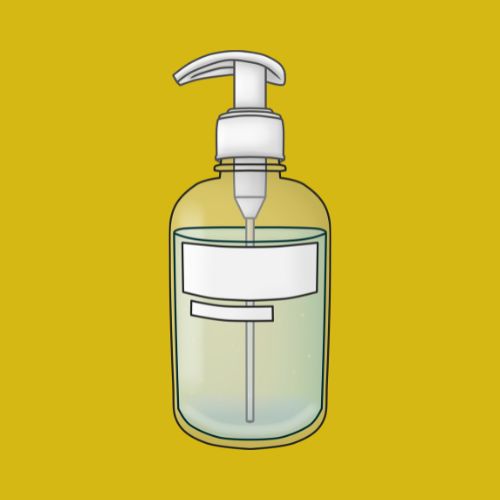
Black people and Caucasians don’t have the same sort of hair. Products mostly target people with white hair. Those items won’t actually benefit black hair. They might even be causing it to get worse. Shea butter and cocoa butter are excellent moisturizers for black people.
8. Wearing a protective style too long
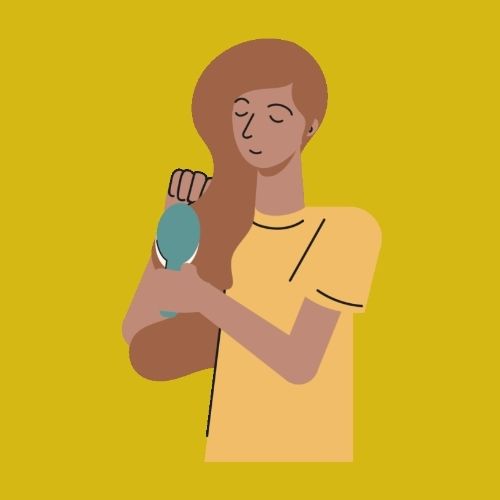
There is a deadline or a window of time within which all protective styles must be removed. If the hair is neglected while it is in the protected style, going beyond that time limit can result in matt up, breaking off, or becoming extremely dry hair.
It should be taken off somewhere between a few weeks and two months, depending on the style. Keeping your hair in the style longer than necessary allows for big tangles because your kinky hair requires air and shed hair needs to be combed out.
Those tangles can break when they are removed, which is tough.
It’s important to adhere to the removal timeframe, and make sure to keep hair clean and moisturized while in the protective style so that your hair is healthy when it is time to remove it.
How to prevent dry kinky hair
1. Moisturize and oil
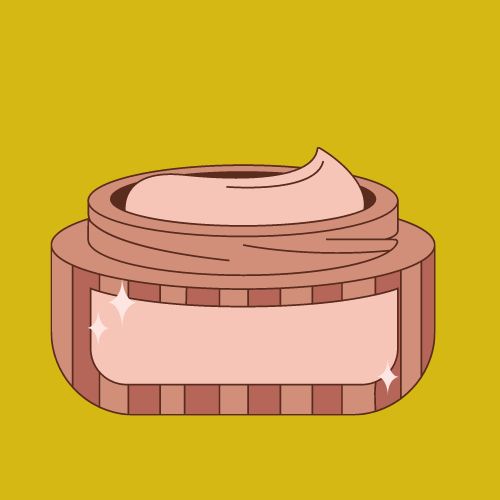
Compared to other ethnic groups like Caucasians or Asians, African Americans have very diverse hair. Due to their straight hair, Caucasian and Asian people may readily moisturize their ends with the oil from their scalps.
Healthy hair is hair that is well-moisturized. It aids in maintaining length and stops the ends from breaking. Your kinky, curly hair makes it tougher for the oil to diffuse between the strands, which results in drier hair and increased breakage.
Here is when maintenance becomes crucial. Use the proper moisturizers every day to hydrate your kinky hair.
You may incorporate oils in a few different ways, but the most crucial is to spread them throughout the lengths of your hair rather than just the scalp. Again, the LOC styling technique can aid to keep moisture in and extend the life of your styles.
Apply oil to your scalp and ends if your hair starts to feel dry during the week. Part your hair lightly. Take special care of your hair’s ends because they are exposed to the elements and are most susceptible to damage from rain, wind, and sun.
Roots Double Effect and Love Row Naturals are the best oils for a dry scalp.
2. Protect Your Hair at Night

While you sleep at night, it’s crucial to protect your hair. Compared to cotton scarves or pillowcases, satin hats and pillowcases are significantly kinder to hair. As opposed to cotton, your hair slides through silky materials. Additionally, cotton may cause your hair to dry out by sucking away moisture.
3. Cut Back on Heat Styling
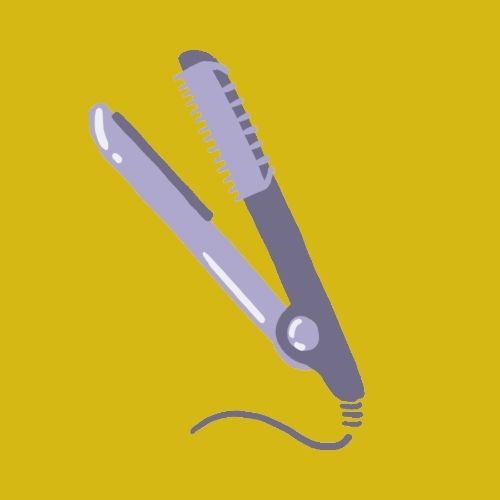
Split ends and perhaps permanent heat damage are caused by heat style, which is quite harmful because it destroys your natural elasticity and cuticle. Curling irons and hot combs are among the heat-styling appliances that might result in dry hair. Heat above 350 degrees is the most harmful because it doesn’t need chemical services. In addition to utilizing a heat shield, we advise using modest heat when heat styling.
You may do this with the help of the Matrix Miracle Creator Multi-Tasking Hair Treatment, a leave-in conditioner with nourishing and heat-protective effects thanks to sweet almond oil that will leave your hair sleek and lustrous.
Your hair will bounce back much faster if you can completely avoid using heat on it. Additionally, you’ll get to experiment with gentler styling options that you may not have done before.
4. Keep Your Natural Color
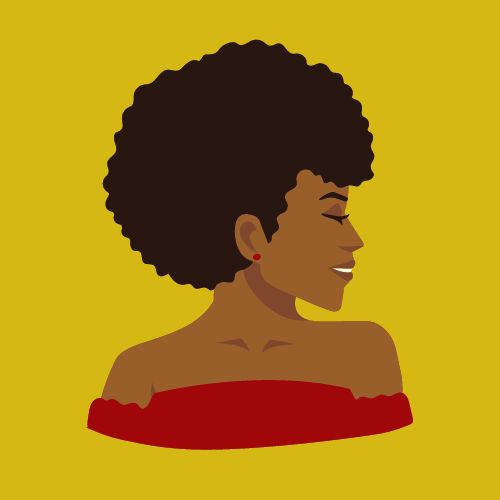
A dry scalp is a side effect of hair coloring chemicals. Ammonia, which is present in color products, is the most widely used chemical. Because the natural oils that your hair generates are removed from your hair follicle when ammonia is combined with hair relaxers, your natural hair becomes even drier and more brittle than before.
If you decide to color your wavy hair, stick to hues that don’t deviate too much from your original hair color. The further you deviate from your natural color, the harder it is for your hair. Use a semi-permanent color like Clairol’s Professional Beautiful Collection Semi-Permanent Colour, which has ingredients like aloe vera, jojoba, and vitamin E for long-lasting, deep conditioning effects.
5. Wear Protective Styles

Your ends suffer damage when you wear your hair out and it scrapes against cotton garments, wool caps, and wool sweaters. You’ll have hair loss since dry ends frequently split and break. If you have kinky hair, you don’t always have to wear a protective style; braids and twists are always a possibility to keep your hair from drying out and breaking.
French rolls, buns, chignons, cornrows, and topknots are additional styling alternatives to keep your ends covered and less prone to breakage and dryness.
6. Habitualise Deep Condition
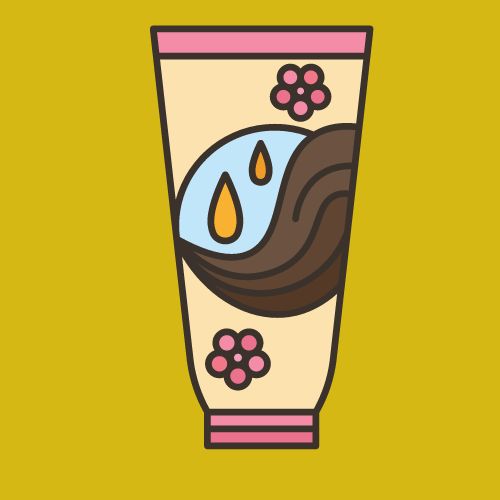
You can regain the moisture you require by regularly deep conditioning. Deep condition once or twice a week for hair that is very dry.
This can be done without a hood dryer. Apply a potent deep conditioner, cover it with a plastic cap, and unwind for a couple of hours. To soften your hair, cover your head with a towel and apply more heat.
Any heat could facilitate a more efficient conditioner penetration of your hair cuticles. Remember to follow each shampoo with a rinse-out conditioner and then a leave-in conditioner.
Frequently Asked Questions (FAQs)
How do I stop my black hair from being dry?
Always Condition. It’s very hard to over-condition black hair, especially if you wear yours naturally. Regular deep conditioning can restore the moisture levels you need. For excessively dry hair, deep condition once or twice per week.
How often should black hair be washed?
Even though natural black hair is dry, the build-up of debris can make it feel greasy if not washed regularly. You should ideally wash your natural black hair once every seven to fourteen days. Use a mild cleansing shampoo and a gentle conditioner.
Should black people wet their hair every day?
Yes, you can wet natural hair every day, and it is actually advised to do so to maintain moisture. Let’s be clear, though: by wetting your hair, we don’t mean washing it. We simply mean rinsing natural hair, either in the shower or by spritzing water over your hair.
Is African hair naturally dry?
When you have afro hair, the natural oil your scalp produces can easily get stuck. As the oils are stuck and not moving down your hair, the ends of your afro become weak, brittle, and dry. Your scalp might be dry, depending on the density of your hair.
Now it’s your turn
Setting up a healthy regimen is the key to overcoming dry kinky hair. Consider the products you’re purchasing, the styling method you’re employing, and the way you’re wearing your hair. You will soon be performing these actions without giving them a second thought after becoming knowledgeable about all these topics and your hair’s needs.
Additionally, take better care of yourself by drinking more water throughout the day, eating fresh fruit and vegetables frequently, and paying attention to how these things influence your hair. Your body needs to consume healthy nutrients in order to be able to properly care for your hair. Keratin (amino acids/protein) and sebum (lipids) are required for a happy curl.
Read Related Articles:
- Why do Black Girls Wear Wig?
- Why Does Black’s People Hair Grow Different?
- How Often Should I Use Rice Water on my Hair?
- How Often Should You Oil Your Scalp Black Hair?
- How Often Should a Black Person Wash Their Hair?
- How Often Should You Wash African-American hair For Growth?
- Why Does Black People’s Hair Itch? Everything you Need to Know!
- Can Black People Use Dry Shampoo? Everything you Need to Know!
- Why Does Black People’s Hair Kinky? Everything you Need to Know!
- Does Black People’s Hair Get Greasy? Everything you Need to Know!
- 21 Must-Know Hair Trends for Black Women That Will Be Big in 2023
- How is Black Hair Different from White Hair? Everything you Need to Know!
- Why Does Black People’s Hair Grow Slower? Everything You Need to Know!
